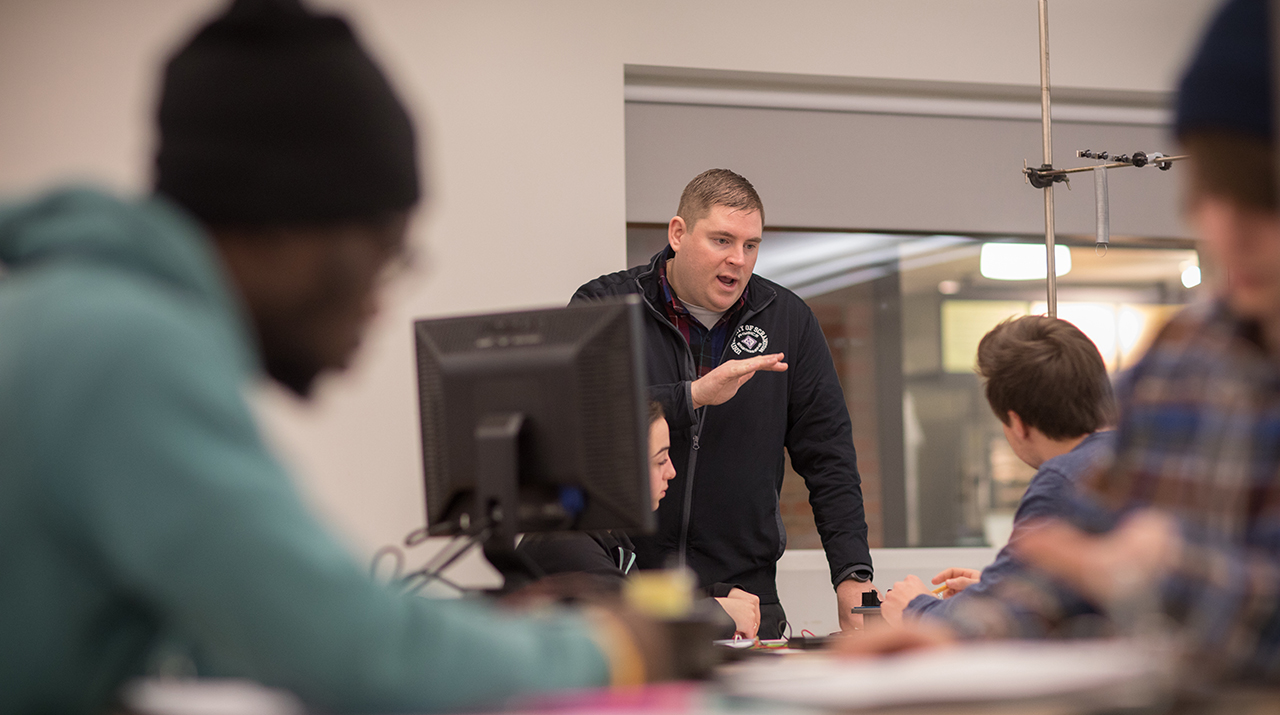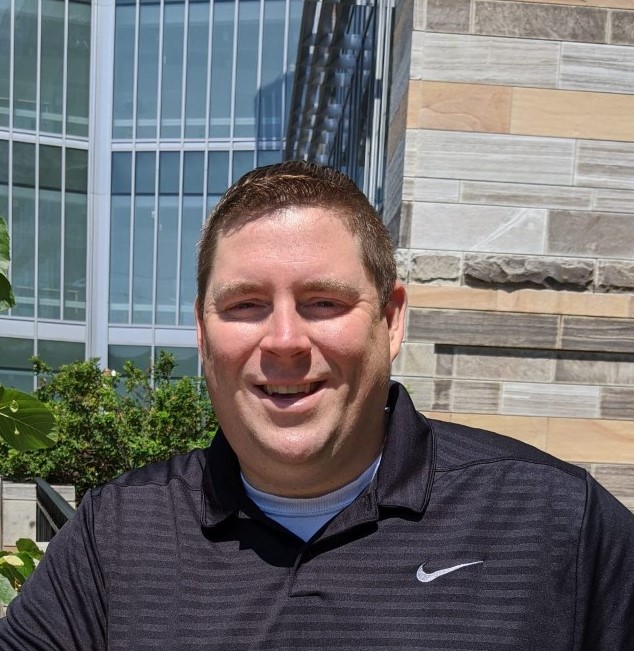Get to Know the new Director of Student Retention and Completion

Nicholas Truncale '06, G'07 was appointed to the inaugural position of director of Student Retention and Completion this summer. Previously, he served as a faculty specialist in the University’s Department of Physics and Engineering. In addition to the time he spent in the classroom, he also served as the Coordinator of General Education Assessment and OEA Fellow in the Office of Educational Assessment and as the Coordinator of Elections for the Faculty Senate while serving on the Faculty Senate Executive Committee. As a faculty representative on the University’s Governance Council, Strategic Enrollment Planning and Student Retention committees, he has been an engaged contributor to student success initiatives for many years.
You're the inaugural director of Student Retention and Completion. Can you give us some examples of how you'll be helping students navigate transitions?
I am thrilled and excited to be in this new position at the University! I’ll be working closely with other departments and personnel on campus to implement proactive intervention strategies to advance student success metrics such as graduation rates, student satisfaction and student success. I’ll also be one more resource for students as they pursue their academic and personal endeavors. People in positions like mine at other institutions are known to be advocates for students. I do not solve problems for the student, but I guide them through the problem-solving process as they navigate transitions.
If any students are in need of information and/or guidance and would like to set up an appointment with me, please see my contact information here:
Nicholas.truncale@scranton.edu
Office: O’Hara 118
Phone: 570-941-6289
How will your experience as a faculty specialist inform how you work with students? Are you looking forward to connecting with Scranton students in a new way?
As a faculty specialist in physics and engineering, I routinely worked with students who were struggling with either coursework or the college life experience. I have counseled students as their support person through the conduct processes administered through Student Life. I have even supported students when they have lost a loved one or encountered personal challenges. These experiences fully inform how I will work with students in my new position.
It is my philosophy that everyone’s primary job at this university is to partner with students in their transformational years at the University. We must emulate kindness, patience, and respect so that our students learn from our own actions and behaviors. I am also looking to connect with students in new ways outside of the classroom. For example, I will be meeting with the leaders of Student Government to see their perspective on how my position can help students excel through their coursework and graduate.
I'm assuming that you had to jump right in this past summer. Can you tell us what you've done to help during this very unique transition?
I began my new position at the end of July and immediately scheduled meetings with staff from different areas on campus in order to learn about their programs and functions. More importantly, I’ve been studying how each area interfaces with one another. If there are pain points in the student experience, I hope to facilitate solutions. I, and others, have been discussing how we, as a campus, can approach retention from a strategic vantage point. I have also been working with the Office of Institutional Research and Office of the Registrar and Academic Services on some data analytics projects.
What're some of the goals of the office?
The University has had a standing Retention Committee for several years. Membership includes hard-working, caring leadership from all student-centered administrative units.
The committee’s goal, and my goal, is to support the academic, spiritual and personal persistence of all enrolled students at the University. I am privileged to now co-chair the committee. A new member of the committee sent a note after our first meeting this academic year and said, “By the middle of the meeting, I realized that this was a great example of what we talk about a lot -- cura personalis -- but seldom witness being done by a committee. I cannot believe the level of connectedness that everyone had to these individual students. It was clear that they were seeing the person and not just a spreadsheet. I just wish that the rest of the community could see this level of care and commitment.”
I think the level of care and commitment we have and demonstrate to our students makes the Scranton experience second to none.
You're a Scranton grad! How does being an alumnus inform your work?
I can still remember sitting in Dr. Klonoski’s Ethics course in St. Thomas Hall when he told me “You write like a scientist," which was accurate at the time being that I was a physics major. He taught me that sometimes it’s not enough to write down declarations and facts and to write with a technical focus to support a hypothesis. Sometimes an examination of an issue must include rhetoric devices and persuasive examples that show you fully grasp the topic. That really stuck with me and with my writing going forward. I think it shows how our General Education program at Scranton is so important (and excellent). I don’t know that I would have learned what I did from Dr. Klonoski at a different university. I was a science major and I wasn’t just a name to him in his Ethics course. The students who I will work with won’t just be names either.







